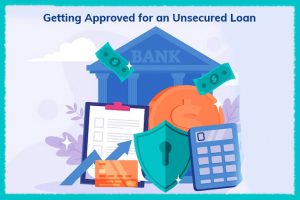Introducing our comprehensive guide to improving approval rates for unsecured loans with bad credit. If you’ve found yourself facing rejection after rejection when it comes to loan applications, you’re not alone. Many individuals with less-than-perfect credit scores face significant hurdles when it comes to securing the funding they need.
In this article, we delve into effective strategies that can help you level the playing field when it comes to obtaining unsecured loans, regardless of your credit history. From understanding the factors lenders consider during the application process to implementing proven techniques for bolstering your chances of approval, we leave no stone unturned in this informative piece.
Whether you’re looking to consolidate existing debts, fund your business, or simply secure some extra cash for an important purchase, this guide offers invaluable insights and actionable advice to help you reach your financial goals.
Don’t let bad or poor credit hold you back anymore. Dive into our expert strategies and empower yourself to overcome the obstacles and gain the financial freedom you deserve.
The importance of credit scores in loan approval
When it comes to obtaining unsecured loans, lenders heavily rely on credit scores to assess an individual’s creditworthiness. Your credit score is a numerical representation of your credit history and serves as a tool for lenders to determine the level of risk involved in lending to you.
Understanding unsecured loans
The term unsecured loan refers to loans that do not have collateral, such as a house or a car. Lenders view unsecured loans as a higher risk since they have no assets to seize in case of default. However, with the right strategies, you can improve your chances of approval and level the playing field.
Strategies for improving credit scores
Improving your credit scores is a crucial step in increasing your chances of obtaining unsecured loans. In order to be effective, you should consider the following strategies:
- Building a Positive Credit History: It helps in improving your credit scores. You can do it by paying your bills on time, keeping your credit utilization low, and avoiding opening multiple lines of credit within a short period.
- Paying off Existing Debts: Focus on paying off high-interest debts first and consider debt consolidation options to streamline your repayment process. By lowering your overall debt burden, reducing your outstanding debts can significantly improve your credit scores.
- Utilizing Credit Repair Services: These services work on your behalf to dispute inaccuracies, negotiate with creditors, and develop personalized strategies to boost your creditworthiness.
By implementing the strategies, you can level the playing field and improve your approval rates for unsecured loans.
Remember, rebuilding your credit takes time and persistence, but with the right approach, you can overcome the obstacles and gain the financial freedom you deserve.
Exploring alternative lending options
If traditional lenders have turned you down due to your bad credit, it’s time to explore alternative lending options. They are financial institutions that specialize in providing loans to individuals with bad credit scores.
- Peer-to-peer lending platform: These platforms connect borrowers directly with individual investors who are willing to lend money.
- Secured loan: Secured loans require collateral, which serves as a guarantee for the lender. By offering collateral, you can mitigate the risk for the lender and increase your chances of loan approval, even with bad credit.
Presenting a strong loan application
While bad credit can be a significant obstacle when it comes to loan approval, presenting a strong loan application can greatly improve your chances of success. Lenders consider various factors when evaluating loan applications, and by addressing these factors head-on, you can make a compelling case for why you should be approved for an unsecured loan.
First and foremost, it’s important to provide accurate and up-to-date information on your loan application. Double-check all the details, including your income, employment history, and other relevant details. Inaccurate or incomplete information can raise red flags for lenders and decrease your chances of approval.
In addition to accurate information, it’s important to provide supporting documentation that showcases your financial stability and ability to repay the loan. This may include recent bank statements and proof of income. By providing these documents, you can demonstrate to the lender that you have a steady income and are capable of making timely loan payments.
Remember, the key to presenting a strong loan application is to be honest, transparent, and proactive. Address any potential concerns upfront and demonstrate your commitment to responsible financial management. By taking these steps, you can significantly improve your chances of obtaining an unsecured loan, even with bad credit.
